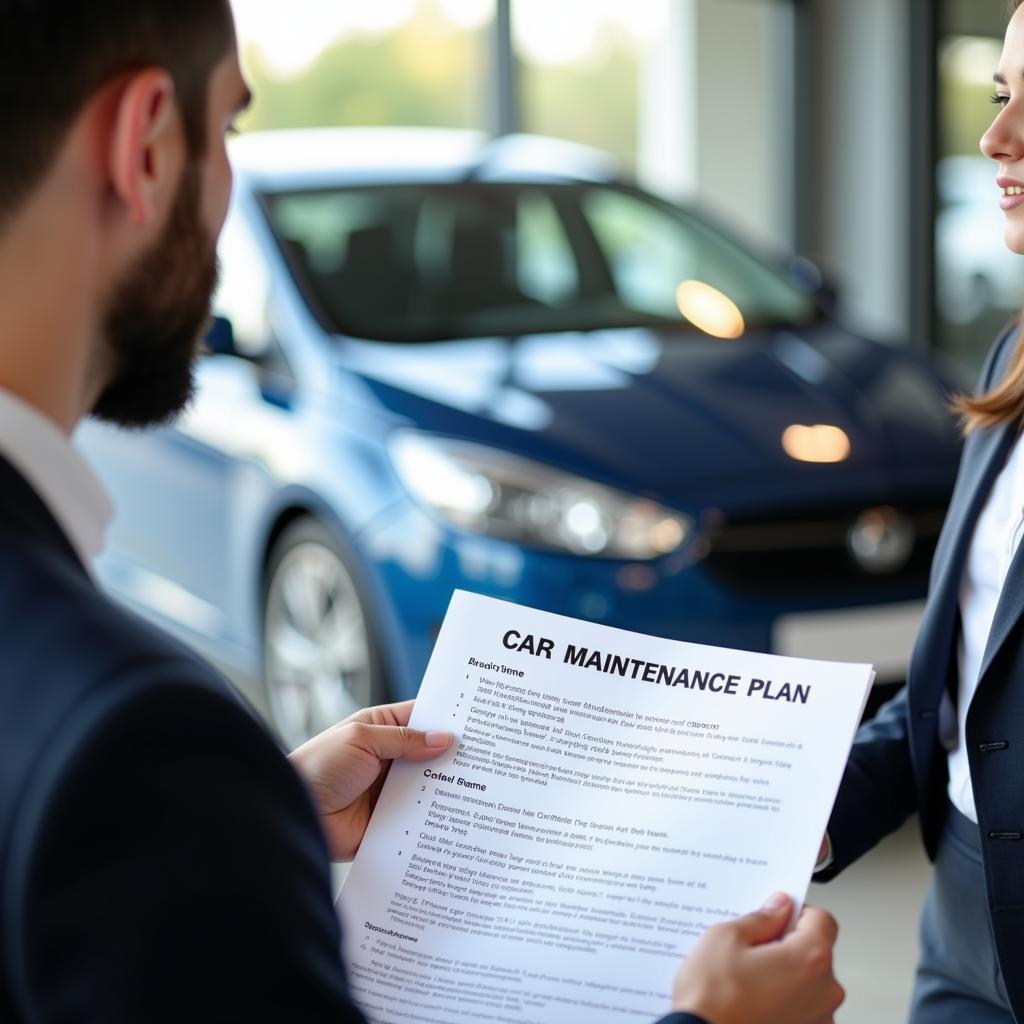Experiencing car troubles? You’re not alone. One of the most frustrating situations is turning the key and hearing…nothing. “Car problems won’t start” is a common search query, and for good reason. Let’s dive into the most frequent culprits behind a stubborn engine and, importantly, how to get you back on the road.
Why Won’t My Car Start?
Before you panic, take a deep breath. Often, the issue is simpler than it seems. Start by asking yourself these questions:
- Do you hear any sounds when you turn the key? A clicking noise could indicate a dead battery, while a whining sound might point to a starter motor issue.
- Did the engine crank slowly? This could be another sign of a weak battery.
- Did you recently leave your headlights or interior lights on? This is a surefire way to drain your battery.
Let’s break down the most common “car problems won’t start” scenarios:
1. Dead Battery: The Usual Suspect
A dead battery is the most frequent reason for a car that won’t start. Batteries have a limited lifespan and can die suddenly, especially in extreme temperatures.
Signs of a Dead Battery:
- Dim headlights
- Slow engine crank
- Clicking sound when turning the key
- Interior lights are dim or don’t work
Solution: Jump-starting your car is often a temporary fix. However, it’s best to get your battery tested at an auto parts store or mechanic. If the battery is dead, a replacement is the best course of action.
2. Starter Motor Failure: A Silent Killer
The starter motor is responsible for turning over the engine to begin the combustion process. If it fails, your engine won’t even try to start.
Signs of a Faulty Starter Motor:
- A single click when turning the key
- The engine doesn’t crank
- Freewheeling (the starter motor spins but doesn’t engage the engine)
Solution: Diagnosing a bad starter motor often requires a mechanic’s expertise. If your starter motor is indeed the issue, it will need to be replaced.
3. Ignition System Problems: The Spark of Life
The ignition system provides the spark that ignites the fuel in your engine. A faulty component within this system, such as the ignition switch, ignition coil, or spark plugs, can prevent your car from starting.
Signs of Ignition System Issues:
- The engine cranks but doesn’t start
- Backfiring or sputtering sounds
- Reduced engine performance
Solution: Troubleshooting ignition system problems often involves checking for spark, inspecting spark plugs, and testing the ignition coil. Due to the complexity of this system, it’s recommended to seek professional help.
4. Fuel System Malfunctions: No Fuel, No Fire
A car needs fuel to run, and any issues in the fuel system – like a clogged fuel filter, malfunctioning fuel pump, or a faulty fuel injector – can lead to starting problems.
Signs of Fuel System Problems:
- The engine cranks but doesn’t start
- Engine sputters and dies shortly after starting
- Smell of gasoline
Solution: Check for a blown fuse related to the fuel system. If that’s not the culprit, you might need to have your fuel pressure tested and the fuel system inspected for leaks or blockages.
5. Sensor Issues: The Brain Behind the Operation
Modern cars rely heavily on sensors to control various functions, including starting. A faulty sensor, such as the crankshaft position sensor or camshaft position sensor, can disrupt the timing of the ignition and fuel systems, preventing the engine from starting.
Signs of Sensor Issues:
- Engine cranks but doesn’t start
- Check engine light is illuminated
- Reduced engine performance
Solution: Diagnosing sensor issues typically requires a diagnostic scanner to read error codes. Once the faulty sensor is identified, it needs to be replaced.
Don’t Let Car Problems Win: When to Call for Help
While some car starting problems can be solved with basic troubleshooting, others require the expertise of a qualified mechanic. If you’re unsure about the cause of your car troubles or uncomfortable performing repairs yourself, it’s best to seek professional assistance.
For reliable car maintenance and repair, contact the experts at Autotippro. We’re here to help you get back on the road quickly and safely.
AutoTipPro
Phone: +1 (641) 206-8880
Office: 500 N St Mary’s St, San Antonio, TX 78205, United States
FAQ:
1. How long do car batteries usually last? Car batteries typically last between 3 to 5 years, but factors like climate and driving habits can affect their lifespan.
2. Can I prevent my car battery from dying? You can help prolong your battery’s life by ensuring your headlights and interior lights are off when the car is not in use, avoiding short trips that don’t allow the battery to fully recharge, and having your battery tested regularly.
3. What should I do if my car won’t start and I suspect it’s the alternator? If you suspect an alternator issue, it’s best to avoid driving your car. A failing alternator won’t adequately charge the battery, eventually leaving you stranded. Have your car towed to a mechanic to diagnose and repair the issue.
4. Is it safe to jump-start my car? Jump-starting a car can be dangerous if done incorrectly. Always refer to your owner’s manual for the proper procedure and safety precautions.
5. My car starts intermittently. What could be the issue? Intermittent starting problems can be tricky to diagnose. Possible causes include a loose connection, a failing ignition switch, a faulty crankshaft position sensor, or even a fuel system issue. It’s crucial to have a mechanic thoroughly inspect your car to pinpoint and resolve the problem.
6. How often should I service my car? Refer to your car’s owner’s manual for the recommended service intervals. Regular maintenance, such as oil changes, filter replacements, and fluid checks, can prevent many car problems and keep your vehicle running smoothly.
7. What are some signs of transmission problems in an automatic car? You can learn more about common signs of transmission problems by reading this article: signs of transmission problems in an automatic car.
Remember, addressing car problems promptly and seeking professional help when needed will save you time, money, and frustration in the long run.






Leave a Reply